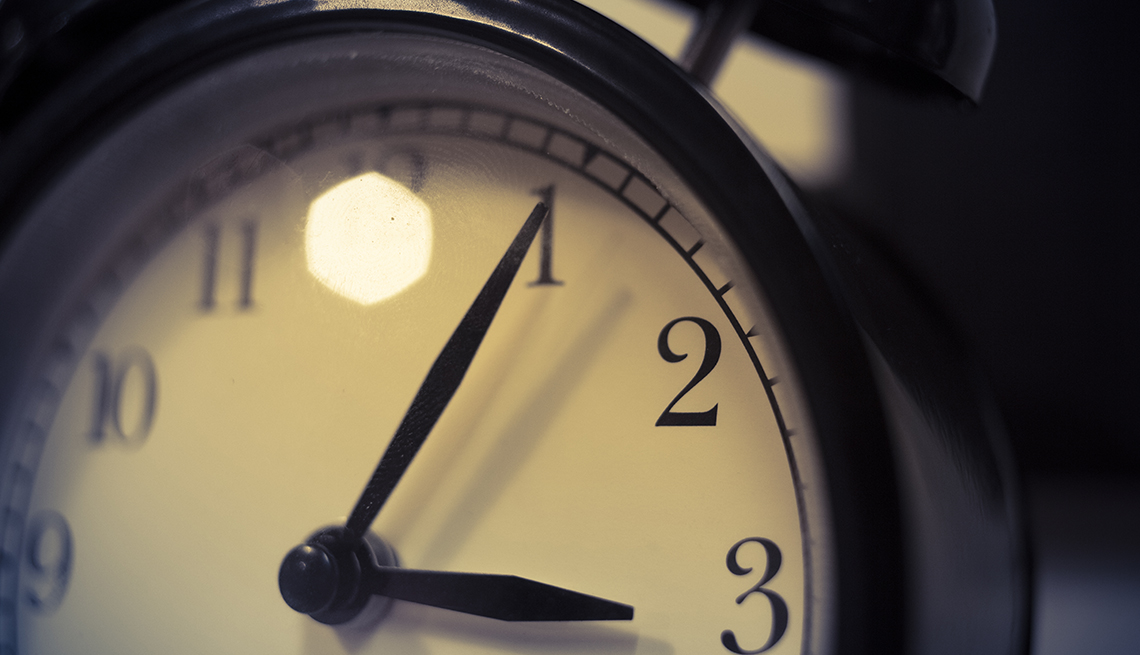Learn about brain health and nootropics to boost brain function
Tips for Surviving Daylight Saving Time

chinaface/getty images It’s just one hour, folks. But, boy, that yearly switch to daylight saving time (DST) — happening this Sunday, March 8 — can really mess with our bodies and our heads.
The disruption in our circadian rhythms — the wake and sleep cycles managed by our body clock and its release of hormones — goes beyond making us just feel tired the day we lose an hour of sleep. Studies have shown that during the week after the annual spring forward, we Americans have more fatal car accidents, heart attacks and atrial fibrillations; may have an uptick in strokes; are more likely to get harsher legal sentences; and even cyber-loaf more in the office.
“Daylight saving time can affect your mood, your overall alertness, your memory and your ability to overall comprehend appropriately,” says Rachel Ziegler, a sleep-medicine physician at the Mayo Clinic Health System. “It’s the most difficult to adjust to for those who are already sleep-deprived or those who already have poor sleep habits .”
But if you’re an older adult without sleep issues, DST can actually lead to a sleep-and-wake cycle that better matches your “mature” circadian rhythms. “As people get older their circadian rhythms tend to advance — meaning that people go to bed early and wake up early — and springing forward tends to help those people,” says Michelle Drerup, M.D., a sleep specialist at the Cleveland Clinic.
Whatever side of the change you’re on — nonplussed early bird or die-hard time-change resister — here are ways to combat the annoying, and potentially harmful, effects of DST. Adjust your bedtime the week before
“I generally recommend that for a few days leading up to daylight saving time, people try to go to bed between 15 and 20 minutes earlier each day,” Ziegler says. Adds Shalini Paruthi, a board-certified sleep-medicine specialist and codirector of the St. Luke’s Sleep Medicine and Research Center in St. Louis: “You should also begin to adjust the timing of other daily routines that are ‘time cues’ for your body, like meals and exercise.” On Saturday try to wear yourself out a bit
“Activity increases our sleep drive, which might help you fall asleep a little earlier than normal,” Drerup says. That’s actually true year-round. “Exercise has been shown in studies to improve sleep quality,” Paruthi explains. “It’s recommended that we get at least 150 minutes of movement or exercise per week, which could be as simple as walking 30 minutes, five days a week.” Also, says Drerup, “On Saturday be mindful of your caffeine intake, and avoid any extra dozing before bedtime.” But don’t try to knock yourself out with the help of a stiff drink; experts say that having alcohol any later than three hours before bedtime can disrupt sleep. Shut off your electronic devices early
“Electronics’ impact varies for everybody, but I usually recommend that people turn off their devices an hour before bedtime,” Drerup says. “Tablets, laptops and phones tend to be more disruptive because they emit a stronger blue light than, say, a TV. And with a TV, you are sitting farther away; the closer you are to your electronics, the more exposure to blue light you’ll get. And the glasses that filter out blue light actually do work.” Follow your normal bedtime routine
“A good bedtime routine includes doing the exact same activities in the exact same order every night,” Paruthi advises. “Most successful bedtime routines are 15 to 30 minutes long. They help transition the brain from a go-go-go mindset to a more calm one, so you can relax and get some sleep.” Try to force yourself awake on time on Sunday — and get outside
“Try to wake up at the time you will need to be up on Monday,” Ziegler says, “to get yourself into that routine.” Adds Sara Nowakowski, M.D., associate professor at Baylor College of Medicine : “Even if you haven’t been able to do the 15 minutes earlier each day, make sure to stick to the wake-up time on Sunday so you don’t feel terrible on Monday.” And then get outside. “Getting the natural sunlight and exercising help alert and awaken us and help to retrain our circadian rhythm,” Drerup explains. If necessary, take a (short!) power nap on Sunday
If you don’t normally have sleep difficulties like insomnia, a nap on the day that the clocks shift can be beneficial, Drerup says. But keep your shut-eye to about 20 minutes, as “a power nap like that can be refreshing and won’t take away too much of your sleep drive for Sunday night,” she adds. And consider early afternoon for the perfect body-clock timing, Nowakowski says. “We actually have a temperature dip and a circadian dip right after lunch, so that might be a good time to take a nap.” Don’t slack off on Sunday night
“Stick to your bedtime Sunday night,” Paruthi recommends, “or even go to bed an hour earlier than your usual bedtime, to get plenty of sleep before the workweek begins on Monday. It should take only one day to adjust to the time change; studies show that it generally takes one day to adjust for every hour of time change.”